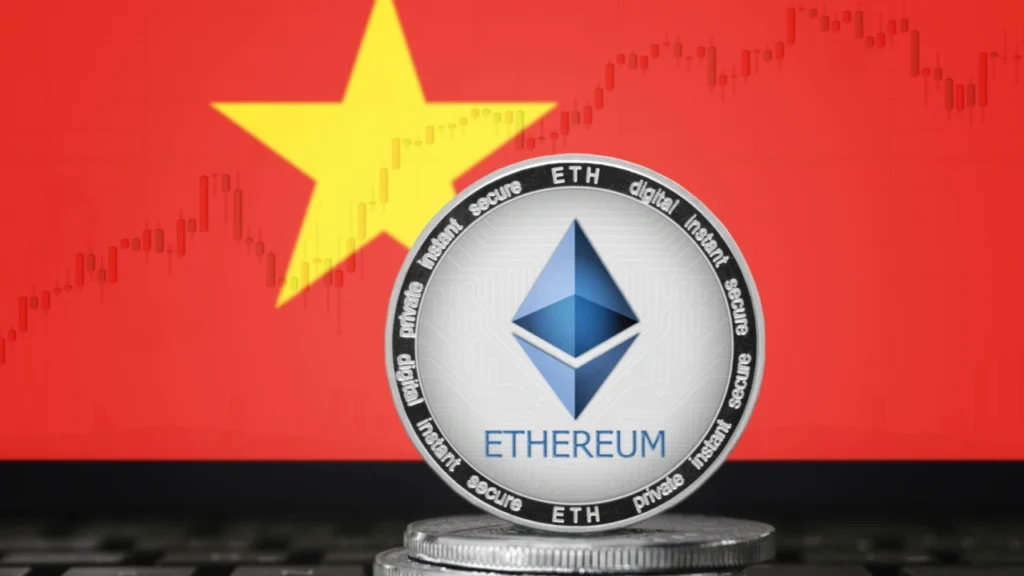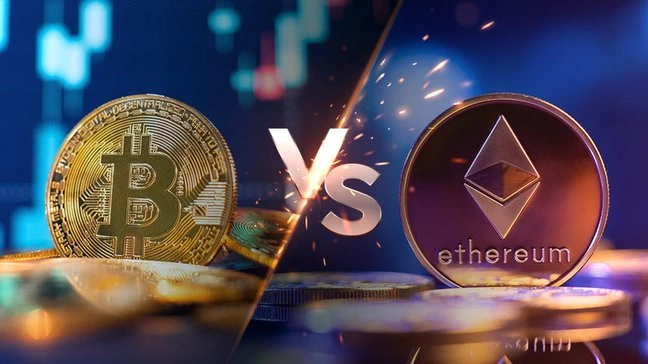ETH vs BTC: A Beginner’s Guide to Understanding Ethereum Growth in Vietnam
If you’re entering the crypto world in Vietnam, there’s a good chance the first question on your mind is: ETH vs BTC — which one holds more promise? These two giants dominate most discussions and platforms, but understanding how they differ can open up new perspectives — especially as ethereum growth becomes a more visible trend across the Vietnamese crypto space.
This tutorial-style article walks through the practical and conceptual differences between Ethereum and Bitcoin, explains how Ethereum is evolving, and explores why more Vietnamese investors are beginning to take notice.
Step 1: Know the Basics — What Is Bitcoin vs Ethereum?
Before comparing potential, it helps to understand the fundamental purpose behind each coin.
Bitcoin (BTC) was created in 2009 and is mainly used as a digital store of value. It’s often referred to as “digital gold” due to its capped supply and limited utility beyond transferring value.
Ethereum (ETH), launched in 2015, introduced the idea of programmable blockchain technology. It allows for the creation of decentralized apps (dApps), smart contracts, NFTs, and even entire financial systems that don’t rely on banks or governments. Ethereum is not just currency — it’s infrastructure.
In Vietnam’s context, this difference is meaningful. While BTC is often viewed as a long-term hold or a “safe crypto,” ETH is increasingly seen as the foundation of digital innovation and future applications.
Step 2: Observe the Local Landscape — ETH vs BTC in Vietnam
Across major Vietnamese crypto communities — from Hanoi’s blockchain meetups to Ho Chi Minh’s emerging Web3 startups — ethereum growth is becoming hard to ignore.
Developers are experimenting with smart contracts for real estate transactions. Local artists are minting NFTs for regional art. Crypto educators are offering Ethereum-based token incentives for online learning.
What this shows is simple: Ethereum is being used. It’s not just a speculative asset anymore. For many Vietnamese creators and builders, ETH is part of the daily toolkit.
By contrast, Bitcoin remains more passive — a digital asset to hold and track.
Step 3: See the Utility — How Ethereum Enables Growth

Credit from X
The key driver of ethereum growth is utility.
Vietnamese startups are now tapping into Ethereum for decentralized finance (DeFi) applications, community-owned platforms, and DAO (Decentralized Autonomous Organization) governance. The blockchain’s flexibility means it can support everything from lending and staking to gaming and supply chain tools.
For instance, a recent community agriculture DAO in Da Nang used Ethereum smart contracts to automatically track contributions and payouts to local farmers — no paperwork needed.
This type of localized use case shows how Ethereum’s programmable nature aligns well with grassroots experimentation and the entrepreneurial energy currently surging in Vietnam.
Step 4: Consider Investment Mindsets — ETH vs BTC for Vietnamese Investors

Credit from Coinfomania
Let’s bring it back to the investor’s lens. Many Vietnamese crypto users aren’t developers or NFT artists — they just want to understand where to put their money.
So ETH vs BTC: which is better for Vietnamese investors? The answer, as usual, depends on your goals.
- If your aim is security, simplicity, and resistance to inflation, Bitcoin fits the bill.
- If you’re interested in staking, earning passive income, supporting dApp ecosystems, or joining early-stage innovations, Ethereum is more versatile.
Ethereum’s upcoming scalability upgrades (such as sharding and Layer-2 integrations) are expected to further drive ethereum growth, potentially unlocking lower fees and wider adoption in Southeast Asia.
Final Step: Making Sense of the Future — Why Ethereum Growth Matters

Credit from Bitcoin.com News
Looking ahead, the future of Ethereum investment in Vietnam seems increasingly tied to digital transformation.
Vietnam is a young, mobile-first country with a strong developer community and rising interest in decentralized technologies. Ethereum, with its open-source framework and global recognition, offers tools that align with these trends.
Crypto exchanges in Vietnam are already seeing rising ETH trading volumes. University groups and hackathons are centering their curricula around Ethereum development. And local influencers are demystifying topics like smart contract security, staking rewards, and ETH Layer-2 projects — helping more people see the coin as more than just an asset.
In other words, ethereum growth is not just technical. It’s cultural.
Conclusion: ETH vs BTC Is a Starting Point, Not a Final Answer

Credit from MTrading
In the end, the ETH vs BTC debate doesn’t need a winner. It’s about understanding how both can serve different roles. Bitcoin provides foundational trust in digital currency. Ethereum unlocks opportunities in digital innovation and programmable finance.
For Vietnam, both have a role to play — but Ethereum’s adaptable framework may prove especially meaningful in a country where digital transformation is speeding up.
As more Vietnamese users explore staking, building, and creating, the spotlight on ethereum growth is only expected to get brighter.




